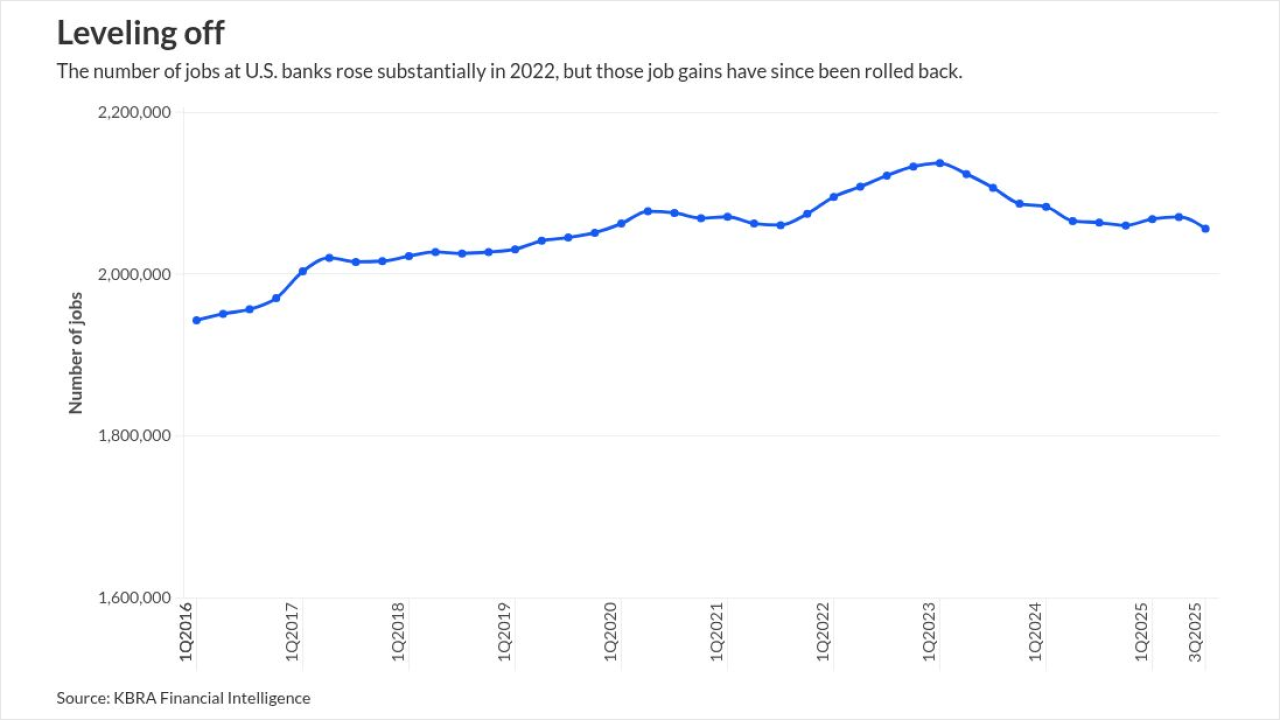
"We had these cocktail receptions where they used to ask 'How do I become a trader?' or 'How do I become an investment banker?'" Neukirchen told American Banker. "Now they want to know 'How do I get into payments?' They want to be part of what's going on."
Neukirchen is well-positioned to answer. Neukirchen and Umar Farooq became
The payments division is also the world's
"We need a lot of bandwidth to manage that degree of spending," Farooq said.
They also share the top payments job at a unique intersection of
"It's hard to overstate
Big decisions
Farooq and Neukirchen succeeded Takis Georgakopoulos, the bank's former head of payments, who later joined Fiserv. Georgakopoulos was in the top post for 17 years, when the
The new leaders brought extensive experience in payments to the job. Farooq was the bank's co-head of global payments sales and CEO of

"Umar and I have known each other for a long time," said Neukirchen, noting he and Farooq worked together at McKinsey before joining
When a major decision needs to be made, Farooq and Neukirchen are quickly brought in, regardless of where in the payments division the query or idea came from. This project management style is designed to avoid bureaucracy in decision-making or management.
"One of us may be in Asia and the other in New York at any given time, but when it comes to big investments we do it together," Farooq said. Both Farooq and Neukirchen are based in New York.
One of
"Payments are central to what clients of all sizes are doing … they are paying employees, paying taxes, treasury management," Neukirchen said. "They're willing to pay for a good solution. So payments tech is not just an efficiency play but a liquidity play."
Learning fast
New processing methods are a large part of the payment unit's work. As FedNow and the Clearing House's RTP Network gain more users, the bank is anticipating demand for tools that improve processing, and a large gap in learning curves depending on the users.
"That underpins a lot of the topics that are coming up for us, like digital payments, embedded finance, digital assets," Farooq said. "And at the same time, a primary focus is the clients."

While executives often speak of being "client" or "customer-centric," Farooq is referring more to the range of users that are on the bank's radar, including startups, software companies, global and local firms, legacy enterprises and the financial institutions that buy processing services from
There are different levels of technology acumen, exposure to cross-border payments with currency conversion and regulatory issues, and challenges regarding scale.
"For us, a big initiative is figuring out the best way to sell to all client segments," Farooq said. "A lot of the startups are digitally native, and we're working all the way to the largest organizations. There is a large spread."
There is also work to get real-time payment systems to work with each other. Most real-time schemes are domestic (even within the U.S., the two main networks do not work together), leaving a major gap for companies that want to move funds between countries with instant settlement. It's a problem that
"We are doing work with our payment infrastructure to test how this would work," Farooq said. "We may have a company in one geographic area paying its vendors in another."
The solution to real-time payment interoperability involves the bank's foreign exchange rail and its data management service.
The same approach to assessing learning curves applies to new forms of artificial intelligence and cryptocurrency.
While
"There are fewer regulatory complications to doing this now, at least in the U.S.," Farooq said.
Will bots take jobs? Generative AI and other emerging forms of machine learning are growing rapidly in banking, proving helpful in fraud detection, sanctions screening, informing customer service and aiding engineers with coding.
"People don't have to start a task with a blank sheet of paper," Neukirchen said. "AI allows them to help with ideation, it's about avoiding going through 500 pages to find three errors."
Regarding AI's impact on staffing, Farooq said the bank is focused on what AI can do to streamline workloads. If the workload for sanctions screening increases 20%, AI can help manage that surge, for example, rather than take over the work entirely.
"That puts people at ease," Farooq said. "Once technology folks know it's not about replacing them with an AI agent to write code, they become more productive."
Tariff tolls
Like all banks,
"A more volatile macro environment is a very important time in a relationship with our clients," Neukirchen said, adding clients often have questions about what a dramatic political or economic change means for their business. "We'll get asked 'Do I have to change my business practice?'" he said.
A changing payments market
The battle among companies that provide payment products for both issuers and merchants is getting a shakeup.
But given
"Capital One will be joining [
"There is also a battle brewing for market share in agentic commerce," McPherson said.
"Leading that unique portfolio requires understanding the different technologies that drive issuing, acquiring and account-based payments," Press said. "More challenging, perhaps, is that it also requires understanding the very different investment needs and revenue drivers for each of these markets."
That also requires a flexible workforce. Farooq said the pace of change is the biggest draw for a career in the payments industry — enabling an environment where an employee can work at a bank and a startup at the same time. But it also requires an ability to learn quickly and to get out of one's comfort zone. That's the answer the college recruits get.
"The biggest quality for a young professional is curiosity, a willingness to ask questions and make things better," Farooq said. "It doesn't matter what level you come in."





